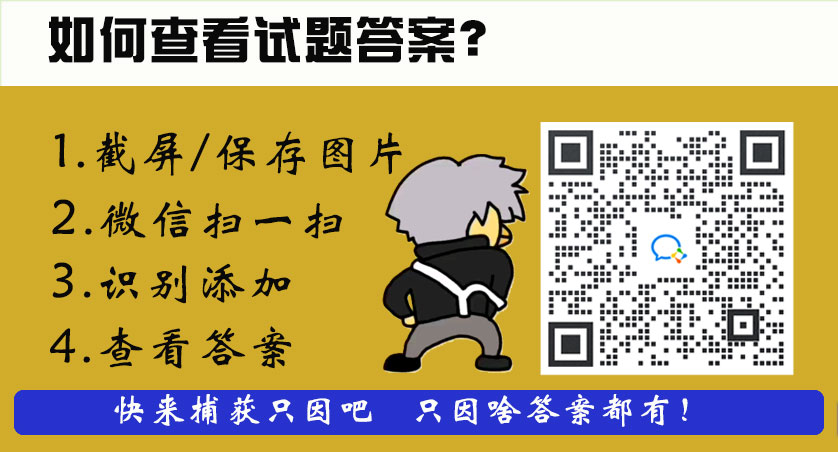双语学习报新高考一卷12起答案,我们目前整理分享关于双语学习报新高考一卷12起答案及其参考答案,2如需答案 请关注微信公众号:考不凡/直接访问www.kaobufan.com(考不凡)

1、双语学习报新高考一卷12起答案
2、学英语报八年级综合能力提升答案
3、2022~2023双语报答案rx高二33
1.The elephant was lying heavily on its side,fast asleep.A few dogs started barking at it.The elephant woke up in a terrible anger:it chased the dogs into the village where they ran for safety.That didn't stop the elephant.It destroyed a dozen houses and injured several people.The villagers were scared and angry.Then someone suggested calling Parbati,the elephant princess.
Parbati Barua's father was a hunter of tigers and an elephant tamer(驯兽者).He taught Parbati to ride an elephant before she could even walk.He also taught her the dangerous art of the elephant round-up--how to catch wild elephants.
Parbati hasn't always lived in the jungle.After a happy childhood hunting with her father,she was sent to boarding school in the city.But Parbati never got used to being there and many years later she went back to her old life."Life in the city is too dull.Catching elephants is an adventure and the excitement lasts for days after the chase,"she says.
But Parbati doesn't catch elephants just for fun."My work,"she says,"is to rescue man from the elephants,and to keep the elephants safe from man."And this is exactly what Parbati has been doing for many years.Increasingly,the Indian elephant is angry:for many years,illegal hunters have attacked it and its home in the jungle has been reduced to small pieces of land.It is now fighting back.Whenever wild elephants enter a tea garden or a village,Parbati is called to guide the animals back to the jungle before they can kill.
The work of an elephant tamer also involves love and devotion.A good elephant tamer will spend hours a day singing love songs to a newly captured elephant."Eventually they grow to love their tamers and never forget them.They are also more loyal than humans,"she said,as she climbed up one of her elephants and sat on the giant,happy animal.An elephant princess indeed!
51.For Parbati,catching elephants is mainly toD.
A.get long lasting excitement B.make the angry elephants tame
C.send them back to the jungle D.keep both man and elephants safe
52.Before Parbati studied in a boarding school,A.
A.she spent her time hunting with her father
B.she learned how to sing love songs
C.she had already been called an elephant princess
D.she was taught how to hunt tigers
53.Indian elephants are getting increasingly angry and they revenge(报复)becauseC.
A.they are caught and sent for heavy work
B.illegal hunters capture them and kill them
C.they are attacked and their land gets limited
D.dogs often bark at them and chase them
54.The passage starts with an elephant story in order to explain that in IndiaD.
A.people easily fall victim(受害者)to elephants attacks
B.dogs are as powerful as elephants
C.elephant tamers are in short supply
D.the man-elephant relationship is getting worse. 试题答案
分析 本文属在文章的开头作者向我们介绍了在印度大象与狗之间的关系并不是很友好,引出"大象公主"巴瓦娣,她的父亲教会他如何捕捉并驯服大象,她的工作驯兽师,驯服大象是为了保护它们的安全,作者写这个文章是为了告诉我们在印度大象与人之间的关系越来越差
解答 51.D 归纳概括题.根据第四段Parbati doesn't catch elephants just for fun."My work is to rescue man from the elephants and to keep the elephants safe from man."可知驯服大象主要是为了保障大象与人之间的安全,故选D.
52.A 细节理解题,根据第三段After happy childhood hunting with her father,she was sent to boarding school in the city.可知Parbati在去寄宿学校学习之前与父亲一起在丛林中度过了她的童年,故选A.
53.C 细节理解题,根据第四段Increasingly,the Indian elephant is angry:for many years,illegal hunters have attacked it and its home in the jungle has been reduced to small pieces of land.可知印度大象越来越生气并且开始报复是因为他们被攻击并且他们生活的领地在减少,故选C.
54.D 主旨大意题,通读全文可知这篇文章是从一个大象的故事开始,作者写这个文章的目的是为了解释在印度大象与人之间的关系越来越差,故选D
点评 本文是故事类阅读理解.做这类题材阅读理解时要求考生对文章通读一遍,做题时结合原文和题目有针对性的找出相关语句进行仔细分析,结合选项选出正确答案.推理判断题也是要在抓住关键句子的基础上合理的分析才能得出正确答案,切忌胡乱猜测,一定要做到有理有据.
完形填空
Ten-year-old Cara Turner loves the giant saltwater pond on her grandparents’ farm. When her grandfather Tom Turner bought the land 15 years earlier, he stocked the pond with fishes._____ in winter, Tom _____ regularly visit the 5.5-acre pond to feed the fishes. One afternoon, _____ the sun melted toward the horizon, Tom _____ to head home from the pond. _____, he was unable to put one foot in front of the other and then ____ backward into the pond’s deep water. When he didn’t _____immediately, Cara jumped in. It was too deep to touch the _____. With one hand, Cara grabbed the bank. With the other, she _____ for her grandfather.
Tom had _____ a stroke(中风)the year before. Now Cara wondered if he had _____again. She grabbed her grandfather’s head, pulled his face out of the water and then pulled him up onto the solid ground. The winter sun almost disappeared, and they were both shaking _____ the coldness. Cara knew she would have to get Tom to _____first, a quarter mile away. But sixty feet from the car, Tom fell. From there, he crawled(爬), _____ himself under a gate, to the car. Caro helped him into the passenger’s side and then got into the driver’s seat. “I used to sit on my dad’s lap and watch him_____,” said Cara. Although she felt _____, she pushed on the gas and drove toward the nearest hospital _____her grandmother Esca was to meet them.
Tom spent six days _____ in the hospital from a stroke. Since the accident, he has _____going to the pond alone. “If Cara hadn’t helped, she might not have a grandpa _____,” said Esca.
1.A. Even B. If C. Thus D. But
2.A. should B. could C. might D. would
3.A. because B. though C. as D. since
4.A. turned over B. turned back C. turned up D. turned out
5.A. Once in a while B. As a result C. By all means D. All of a sudden
6.A. fell B. jumped C. rolled D. dived
7.A. hurt B. surface C. wake D. sink
8.A. bottom B. bank C. water D. pond
9.A. waited B. cared C. reached D. looked
10.A. felt B. seen C. stood D. suffered
11.A. that B. one C. everything D. something
12.A. from B. to C. of D. through
13.A. the farm B. the gate C. the car D. the house
14.A. devoting B. rushing C. carrying D. dragging
15.A. drive B. sing C. dance D. play
16.A. relaxed B. nervous C. satisfied D. embarrassed
17.A. when B. which C. where D. that
18.A. recovering B. treating C. struggling D. experiencing
19.A. continued B. agreed C. managed D. stopped
20.A. after all B. any more C. at least D. any better